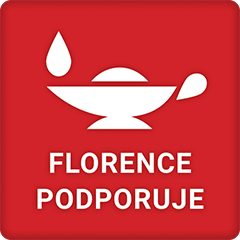


Číslo 6 / 2021
Four Major Differences Between ICU and ER Nurses
Four Major Differences Between ICU and ER Nurses
1. Work Style
Emergency Room (ER) nurses thrive in chaos. Intensive Care Unit (ICU) nurses detest chaos. When it comes to the work environment, the two specialties can seem like opposite worlds.
ER Nurses have personalities that work best amid a storm of disorganization. It’s very hard to stress out an ER nurse. Because of the chaotic flow, ER nurses rely massively on teamwork and intuition. Ratios can be tough to manage, depending on who walks in the door, and these nurses run around like lives depend on it…and they do.
ICU Nurses on the other hand, typically operate like well-oiled machines and wouldn’t have it any other way. ICU nurses appreciate shifts that are structured, organized, and allow them to perform their work without hiccups.
2. Organization (or Lack Thereof)
I have never met an ICU Nurse who wasn’t meticulously organized and borderline OCD, in the best way possible. These nurses know their stuff. Checklists of exactly which medications are due and highlighted grids of which are compatible together, which drips to titrate and when exact intake and output of fluids to the millilitres of blood taken for lab draws, etc. It’s hard to catch an ICU nurse off-guard with a question about their patients’ care.
ER Nurses operate entirely differently, and for good reason. They don’t have the time or luxury to be detail-oriented. They only have the time to assess, react, and move on. So if you want to look at an ER nurse’s paper “brain”, don’t be surprised if they don’t carry one. Everything they need to know is up top.
3. Goals of care
In an ER, you never know who walks through that door next. ER nursing is the very big picture. You assess, identify the major problem, treat the major problem, and get the patient back out the door onto another appropriate floor because there are many others waiting for that bed. Prioritize, stabilize, move out. You only have time for reactivity and responsiveness.
In the ICU, you can instead proactively think and act. ICU nurses have to look at everybody’s system as interconnected and treat it as such. Something that affects your neurological functioning, affects your GI system, affects your liver, your kidneys, etc.
ICU nurses are planning for long-term goals for patients and often watch patients progress from critical illness to health again. The goal is not in-and-out, it’s long-term wellness. ICU nurses are very involved with patients and families, building rapport and providing education. ER nurses often don’t have the time for much interaction with patients and families beyond life-saving measures.
4. Personality types
ER nurses are adaptable, calm, and collected during emergencies, quick-acting, big-picture thinkers, adrenaline seekers, love organized chaos, and their report is something like “the patient is alive.”
ICU nurses are meticulous, organized, planners, that love a detailed level of care, and they can simultaneously orchestrate 10 pumps, 6 drips, 4 beeps, and 1 crashing patient without blinking an eye.
Although ICU and ER nurses alike are superheroes. They are incredibly smart, quick-thinking, and save lives every single day. Hats off!
Source: Hamstra B. 4 Major Differences Between ICU and Emergency Nurses. [online]. Available from: https://nurse.org/articles/differences-between-icu-er-nurses/.
Slovníček
to thrive – libovat si; prospívat; prosperovat, vzkvétat
to detest – nesnášet, nenávidět, hnusit si, mít k smrti nerad
amid – uprostřed
storm – smršť; bouře, vánice, vichřice
to rely – spoléhat se, počítat s čím; být odkázán na
ratio – dávka; poměr, míra
to operate – fungovat; běžet, být v činnosti; operovat; působit
well-oiled – dobře namazaný, naolejovaný
shift – směna
hiccup – zádrhel, nesnáz, háček; škytnutí
lack thereof – nedostatek toho (co bylo zmíněno předtím)
meticulously – precizně, puntičkářsky, pedantsky
borderline OCD – mezní, hraniční případ obsedantně kompulzivní poruchy
to know one’s stuff – rozumět své věci
to be due – být patřičný, očekávaný, na místě
grid – mřížka, tabulka; síť
drip – infuze; kapka, kapání
titrate – titrovat
lab draw – laboratorní odběr
off-guard – zaskočený, nepřipravený
up top – v hlavě
to move out – vystěhovat; vyklidit; stáhnout, odvolat
in-and-out – kolísavý, střídavě dobrý a špatný
rapport – vzájemné porozumění, ztotožnění
beyond – kromě; za; na druhé straně
measure – opatření, krok
collected – klidný, rozvážný
to orchestrate – zorganizovat; orchestrovat
beep – pípnutí; zatroubení
crashing patient – naléhavý pacient
to blink – mrkat; blikat, probleskovat
Hats off! – Klobouk dolů!
Další články v tomto čísle
- X. kongres perioperačních sester s mezinárodní účastí pod záštitou FN Brno
- Editorial
- Světový den STOP dekubitům na Ministerstvu zdravotnictví
- Rescue marathon 2021
- Cena Michala Velíška, aneb jak se venkovský kluk stal hrdinou
- Darujeme se Zdravíkem
- Co znamená přijít včas? To nejdůležitější v projektu M&P&
- Fakultní nemocnice Královské Vinohrady v době covidové
- Weaning – klíčové slovo i v následné intenzivní péči
- Přibližujeme první pomoc a práci záchranářů široké veřejnosti











